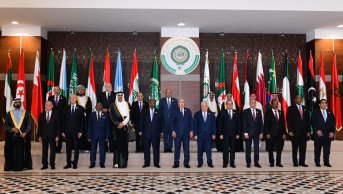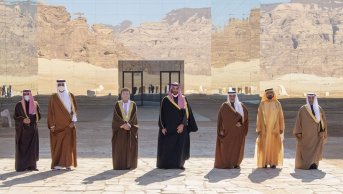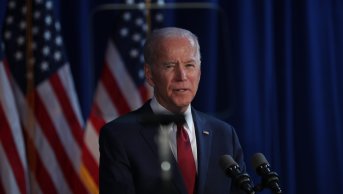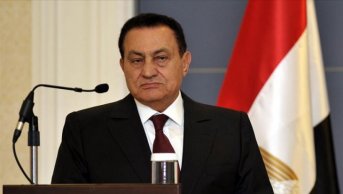Hamas-Israel Ceasefire and the Geopolitical Effects of the Palestinian Victory
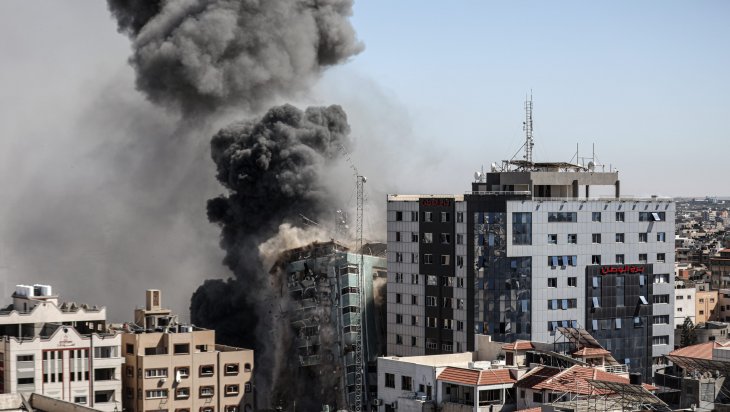
In the last days of Ramadan, confrontations occurred with Israel who wanted to evict 12 Palestinian families out of the Sheikh Jarrah neighborhood in Jerusalem. As the tensions increased, people praying in Masjid al-Aqsa were attacked and subsequently, the resistance in Jerusalem spread throughout Palestine. Against this arbitrary and unfair practice of Israel, long time embargoed Gaza, the West Bank under the rule of Fatah, and Israeli citizens of Palestinian descent called the "Arabs of '48" rebelled against Israel's discriminatory, oppressive and aggressive occupation policy and said "Stop!". The main surprise was, of course, the resistance put up by Gaza, which was turned into an open-air prison, and the serious uprisings of the "Arabs of '48", who were thought to have lost their souls. Gaza did not surrender even after 11 days of bombardment, forcing Israel into a ceasefire.
Although it is Israel declaring ceasefire, it is clear that the ceasefire is a result of the US pressure on Prime Minister Benjamin Netanyahu, who seems to have sworn to destroy Hamas. Despite the mediation efforts of Egypt, who is concerned from the beginning about the escalation of the situation between the two sides, it was the massive public pressure both from inside and outside on US President Joe Biden that led to this outcome. Although Biden has great support for Israel, Netanyahu has not been able to find the open check he is used to during Trump administration. Forcing Israel into a ceasefire means tacit admission of defeat, but the Israeli press and government are trying to declare this a victory. It is normal for Hamas to accept the ceasefire as it was already fighting under disadvantaged conditions.
During the 11-day Israeli bombardment, the people and the city of Gaza suffered great damage, which were already in dire conditions under the embargo. During this period, the death toll exceeded 200 and thousands of Gazans were injured. The already insufficient infrastructure of Gaza was ravaged as the electricity and drinking water facilities were destroyed. Likewise, in other cities, the protesters who took to the streets to condemn the Israeli occupation were killed and wounded in attacks where real bullets were used. Yet all of these, especially despite the silence of democratic Western administrations, did not suffice to break the resistance of the Palestinians and in the face of increasing public pressure, these administrations also increased the pressure on Israel and Biden.
Again, during the 11-day bombardment, Israel was unable to silence Hamas, which it describes as a "terrorist organisation", and Islamic Jihad groups that resisted the occupation. On the contrary, Israeli cities, airports and military facilities witnessed artillery and missile attacks during this period. Throughout the conflicts, Israel's "Iron Dome" defense system on which it spent billions of dollars in development was breached and unable to stop the missile and artillery fire. Most importantly, many Israeli facilities were targeted, including the airport in the capital city of Tel Aviv, which Israel aims to move to Jerusalem, and almost all flights were canceled. In addition to the economic losses of Israel, its citizens could not leave the shelters, and perhaps for the first time experienced serious fear.
Especially the media towers got their share of Israel's actions that could be considered as war crimes. While the Israeli army destroyed hundreds of residences, it also destroyed about 10 high towers resided by civilians because they were in sight. Among these, targeting of the Jala Tower, where the offices of Aljazeera and Associated Press (AP) were located, implies a special meaning. Even though Israel tried to intimidate Gazans by targeting large buildings, its attack on the media after being unable to stop the internal broadcasts angered even its friends in the West. As was the case in the murder of journalist Jamal Khashoggi, the attack caused serious reactions due to the solidarity among media members and the fact that media freedom is considered sacred in the US.
We also need to mention the role of the media and social media in this latest crisis. In this respect, Israel's activities have been receiving reactions for quite some time. It is safe to say that the reckless approach which disregarded international law and human rights, especially during the Trump administration, increased antipathy towards Israel. The fact that Palestinians, and especially Aljazeera, instantly broadcast the attacks and the destruction to the world and that the images from the inside spread into social media created a serious indignation in the world public opinion. Although the media war is normally a strong suit of Israeli lobbies, social media platforms, who play an increasing role in our lives with each passing day, had great impact thanks to the videos, pictures and comments regarding the developments. The Israeli lobby tried to censor these platforms as well, but could not cope with the flood of messages directed against itself.
The Palestinian ceasefire also has the potential to deeply affect Israel's domestic policy. The fact that Netanyahu administration was forced into a ceasefire could seriously endanger his political career. Because, by trying to advance his political career at the expense of Palestinians lives, he has also made the lives of Israelis miserable in addition to his destructions in Gaza. It is clear that Netanyahu's failure will undermine his credibility (especially among the radical wings that support him) as he was unable to achieve his goal. Although he tried to portray this as a success, he could not end or bring to their knees Hamas and Islamic Jihad and protect the Israeli people. Of course, the impact of this will mainly be determined by the perception and reaction of Israeli citizens.
One of the biggest losers of this resistance, which can be considered as the Third İntifada, will be the Gulf countries, who rushed to normalize their relations with Israel and to become allies during the administrations of Trump and Kushner. Some Arab countries, notably the United Arab Emirates (UAE), were signaling their sympathy for Israel beyond normalization. This recent crisis shows that Israel will not be able to be a normal country. And it is obvious that the Arab countries in question will not be able to resist the strong nationalist wave that refuses to normalize. After Trump, the lack of a serious power to oblige these countries to form closer alliance with Israel will slow down the efforts towards normalization for a certain period of time. Netanyahu risks losing the gains he previously thought he had achieved by forcing his hand too hard.
Another actor whose failure became evident in this crisis is the West Bank administration in Ramallah, led by Mahmoud Abbas. Abbas, who unexpectedly canceled the elections planned to be held in Palestine after a long hiatus by saying "No election without East Jerusalem", turned out to be an ineffective element with the crisis. It was observed that the Abbas administration was incapable of even explaining what Israel did by visiting at least the capitals of important countries, and could not react adequately even to the ruthless attacks. The Palestinian people, despairing from the administration that holds the title of head of state even only on paper, took the initiative and the control. The people defended their rights in all cities without expecting anything from the administration.
During the period of peace, Abbas administration will be desired to be given a role in order to prevent Hamas from gaining power in the reconstruction process of Gaza. Because it is clear that Israel, which has been hit hard by the war that has just ended, will not give way to Hamas who is expected to win the elections in the West Bank when the Palestinian elections come. In this respect, it is suspected that there is a tacit agreement between Israel and Abbas.
In terms of the Middle East, the success of Hamas in the Palestinian resistance will also alleviate the pressures on the Muslim Brotherhood, as this resistance has been largely the success of Islamic movements.
The new situation may signify that Egypt, who does not want to come under Gulf (UAE) hegemony, will assume a more constructive role in its region. Biden thanked Egyptian President Abdel Fattah el-Sisi for mediating the Palestinian ceasefire and wanted to give him a role (one would not expect him to thank President Recep Tayyip Erdogan, who challenged the US the most in stopping Israel). However, with its great regional importance, even the slightest stance of Egypt from time to time against Israel is of vital importance for the region. This relatively independent attitude is something Turkey would also prefer. From this point of view, it can be expected that Egypt's pressure on Hamas and Gaza will partially decrease.
The next main issue is to heal the wounds under the leadership of Islamic countries such as Egypt and Turkey. The pressure on Israel, whose prestige has taken a hit, will and should increase to lift the embargo in Gaza and to return the diplomatic gifts that Trump had gratuitously given. The cost of repairing and rebuilding the destroyed infrastructure is high. About 500 buildings were leveled, nearly 50 thousand people were left homeless. About 10 clinics and hospitals, some mosques and 40 schools were destroyed. The US and Gulf countries will have to take steps to rebuild them. Countries that assumed responsibility in the Palestinian cause (such as Turkey, Qatar, Kuwait and Oman) will already play a role in the reconstruction process.
As a result, having lost both on the field and on social media, Israel will experience both at home and abroad the critical consequences of this unaccustomed defeat. Unable to prevent the missiles of the Palestinian insurgents with the Iron Dome defense system, Israel was also unable to deal with the messages and contents on social media platforms where it is trying to resort to censorship. The realization that Israel, who is trying to cheat Turkey out of its rights in the Eastern Mediterranean like it did to Palestine, is not as strong as it seems in the region, has the potential to reduce the speed and the effectiveness of its anti-Turkey efforts. Therefore, with the Palestinian ceasefire, we are faced with a new situation that may change the balances in the region in all aspects.

